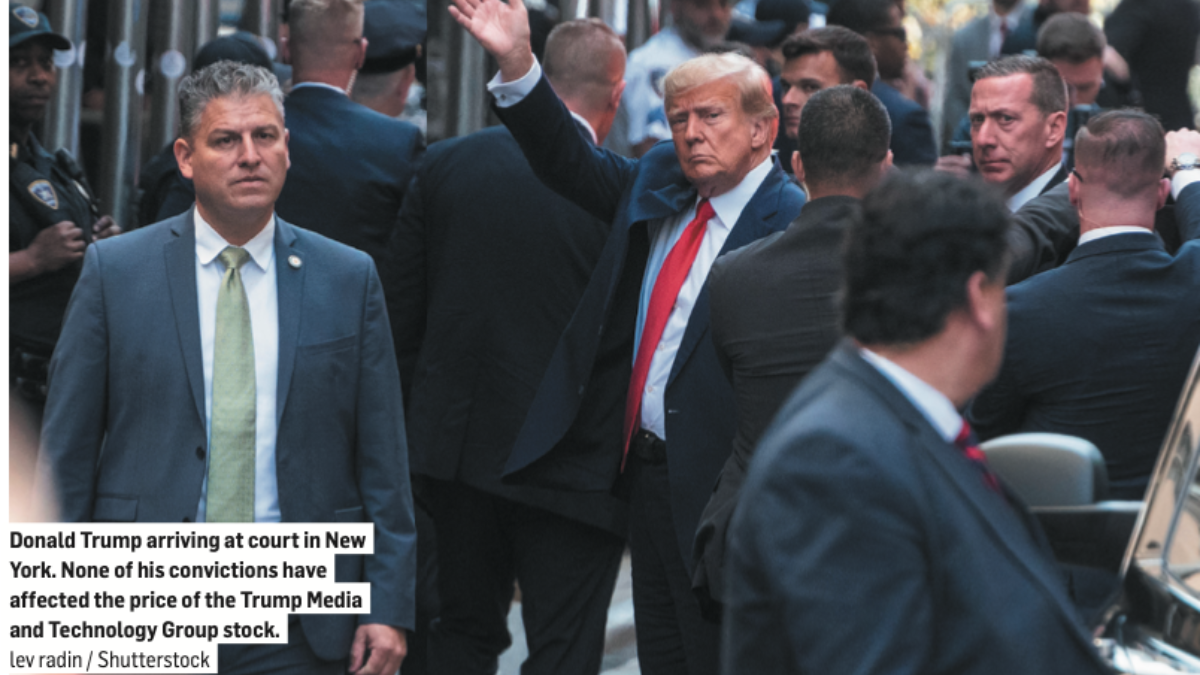The first and most sensible thing to say about meme stocks is that they have no place in anyone’s pension portfolio. Investing for one’s old age is all about thinking long-term and balancing growth potential against risk.
Meme stocks, on the other hand, are intensely short-term affairs. They are all about rush and (probably) bust. The philosophy here is to get in fast when the ride starts and grab your gains before the stock implodes.
That said, if you have a grand or two to flutter and don’t care about losing it, they can provide a high adrenalin ride. That, in itself, requires a word of caution. Meme stock investing is best thought of as gambling, pure and simple.
Serious investors will always tell rookies that trying to time the market is a fool’s game. You may win once or twice by getting in and out at the right time, but if you keep doing it the odds are your winnings will evaporate and your losses will soar.
Plus, gambling is addictive. The adrenaline rush can become an end in itself. For many investors in meme stocks, the excitement and the feeling of being part of an investor community that is committed to driving up the meme stock’s price, is possibly as important as the anticipated returns.
So, what is a meme and what is a meme stock? Anything brief can be a meme, provided it encapsulates something in a way that appeals to others. In other words, memes are catchy, which exactly explains why the price of meme stocks can really surge.
More specifically, the generally accepted definition of a meme stock is a stock that a bunch of retail investors, having got together via a social media platform such as Reddit, have decided among themselves to buy. The buy decision is generally not based on that stock’s brilliant-and-sure-to-be- successful business model, but on the idea that if enough retail investors buy into it, the price will surge.
The first officially designated meme stock was GameStop, a video game, consumer electronics, and gaming company headquartered in Grapevine, Texas. It is the largest retailer of computer games worldwide, but since games can now be bought on multiple platforms and over the internet, GameStop’s business model is questionable.
In 2021, serious Wall Street investors began short-selling GameStop stock. However, Keith Gill, a member of a Reddit group called WallStreetBets, who had the ‘handle’ Roaring Kitty, encouraged a number of retail investors to bet against Game- Stop short sellers, and effectively launched the meme-stock craze. The idea was that if a small army of retail investors could drive the price up, this would scare the short sellers, who would have to start buying GameStop shares to cover their short bets. Forcing the short-sellers to become buyers would drive the price still higher. It worked and the meme-stock movement was born.
Arguably the most startling new meme stock is convicted felon Donald Trump’s Trump Media and Technology Group (TMTG).
It became a public company on March 26, 2024, after merging with Digital World Acquisition Corp, a special-purpose acquisition company.
TMTG has just one operating business, Trump’s Truth Social Platform, which was set up after Trump was banned from Twitter
(as it then was). Truth Social has some 700,000 users. By way of contrast, Twitter has 330 million users and a market capitalisation of $41 billion.
TMTG’s market cap is currently slightly more than $8.6 billion on $4 million of revenues. Trump’s frenetic postings constitute the platform’s prime attraction. In addition, TMTG recently declared a loss of $326 million for the
first quarter of 2024. That deficit was inflated by its ‘going public’ expenses, but the consensus is that it loses $58 million a year on revenues of $4 million.
In normal circumstances, TMTG would in all probability be heading for a bust and its share price would be next to worthless.
This is what makes TMTG such a prime example of how powerful a meme stock’s rise can be. It had a minor crash, shortly after launching, dropping from $6 billion to around $2.3 billion in market cap, but at the time of writing has risen again to more than $8 billion. None of this makes sense from the perspective of a conventional business model.
There is very little doubt that TMTG’s incredible stock price and market valuation is being kept in the stratosphere by a vast army of retail investors – probably mostly Trump adherents – who keep piling into the stock.
That also raises the question of what happens to TMTG’s share price if Trump loses the race to become president. Does it keep rising? Possibly, given that Trump’s convictions in the US civil courts for rape and defama- tion, as well as a civil conviction for long-term fraud in New York, have not so far created any head- winds for the stock.
Will TMTG’s stock price crash at some point, causing those who do not sell in time to lose their money? Very probably, but it has doubtless already made some retail investors handsome profits.
Of course so, on occasion, does betting on Lucky Lad in the 3.30 at Ascot. You pays your money and you takes your chances – but this is gambling, not investing.



